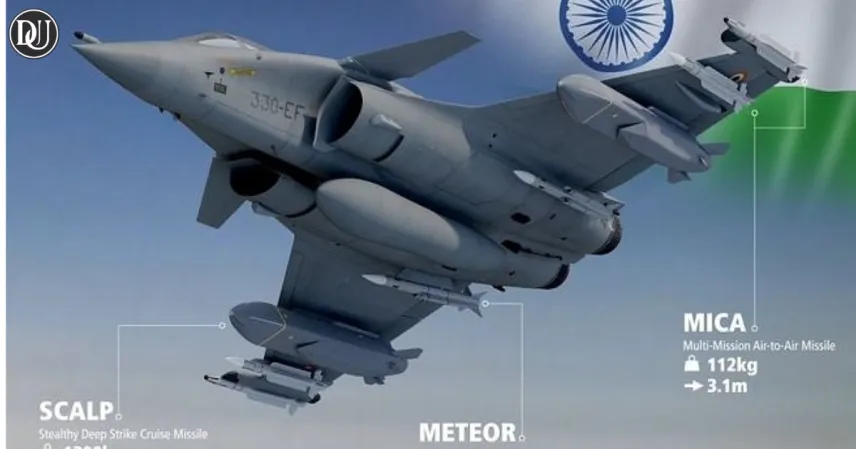The Indian Air Force (IAF) has assured the nation that all its pilots are safe and have returned home following a series of recent aerial clashes with Pakistan. The conflict escalated in early May 2025 when India launched a series of airstrikes targeting what it called "terrorist infrastructure" in Pakistan-administered Kashmir. These airstrikes were reportedly in retaliation for a string of attacks attributed to Pakistani-backed insurgents on Indian soil.
The IAF, in a statement issued on May 11, 2025, acknowledged that "losses are a part of combat," reflecting the challenges faced by air forces during high-stakes military operations. While the statement confirmed the safety of all Indian pilots, it refrained from providing specifics on the number or type of aircraft lost in the operation, including whether any Rafale fighter jets were among the casualties. This statement came in the wake of reports that Indian and Pakistani aircraft were engaged in combat, leading to speculation over the outcome of the aerial encounters.
![]()
Pakistani military officials made claims that their forces had shot down multiple Indian aircraft, including Rafale fighter jets, during these engagements. According to Pakistan, five Indian planes were brought down, although these claims have not been independently verified by Indian officials. In addition, multiple sources from Indian-administered Kashmir confirmed that three fighter jets had crashed within the region, though it is unclear whether any of these were Rafale fighter jets. Indian officials have yet to officially acknowledge any aircraft losses.
Despite the mounting tension, the Indian Air Force emphasized the importance of resilience in combat, noting that such losses are part of the risks that military personnel face during wartime. The IAF also maintained that all personnel involved in the strikes, including the pilots of Rafale fighter jets, had returned to their base safely, alleviating concerns about potential casualties within the Indian ranks.
Related Article : India's $7.4B Rafale Deal: Boosting Security or Wasting Billions?
The escalation of tensions between India and Pakistan has stirred significant concern in the international community, especially as both nations possess nuclear capabilities. The aerial confrontations come on the heels of previous clashes between the two nuclear-armed neighbors, highlighting the volatile nature of their ongoing territorial disputes. The role of Rafale fighter jets in these engagements has drawn particular attention, with many analysts closely observing the performance of India’s advanced French-made aircraft in combat.
![]()
As India and Pakistan remain at odds over Kashmir, the safety of military personnel has become a central concern. While India’s airstrikes were framed as a targeted operation to neutralize terrorist camps, Pakistan sees these actions as an act of aggression, further inflaming bilateral relations. The international community has called for restraint from both sides, urging diplomatic solutions to address the underlying issues driving the conflict.
The IAF’s brief statement, while focusing on the safety of its pilots, reflects a careful approach to managing sensitive information in the midst of an ongoing military confrontation. While India has not fully confirmed the loss of Rafale fighter jets, it has clarified that no personnel have been harmed in the recent operations.
The situation remains tense, and both nations are likely to continue their military posturing as the conflict progresses. The role of Rafale fighter jets will continue to be a key point of focus, especially as both sides assess their capabilities. Further updates on the status of military assets and personnel are expected as more details emerge. However, for now, the IAF’s message remains clear: while losses in combat are inevitable, the safety of its personnel remains a top priority, and the Rafale fighter jets remain a crucial part of India's defense strategy.










